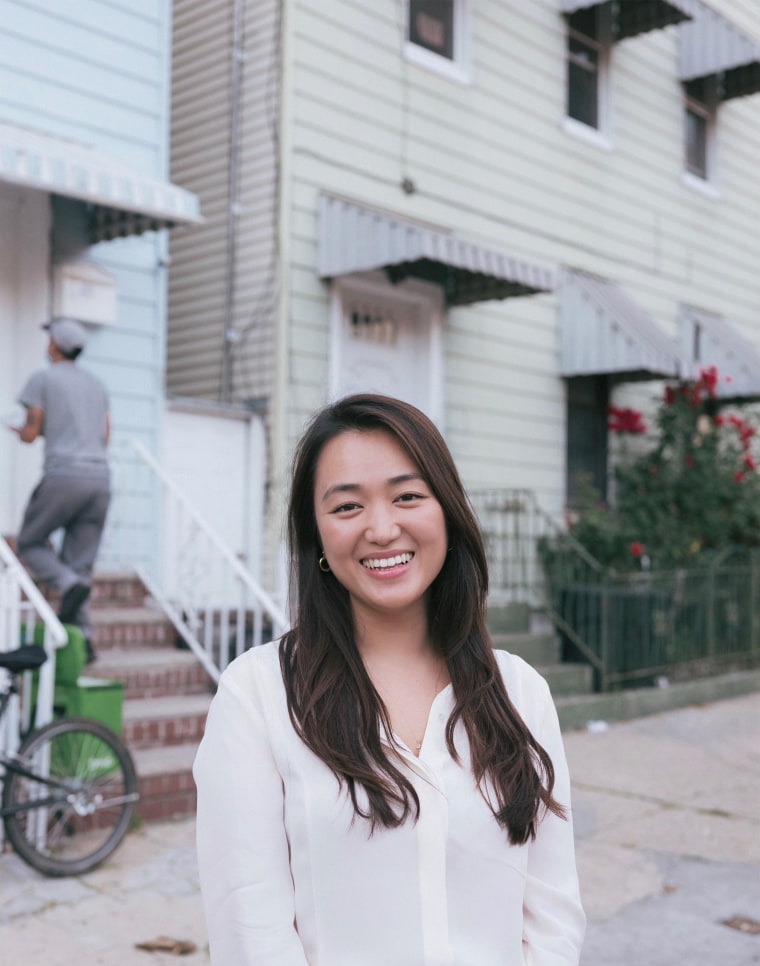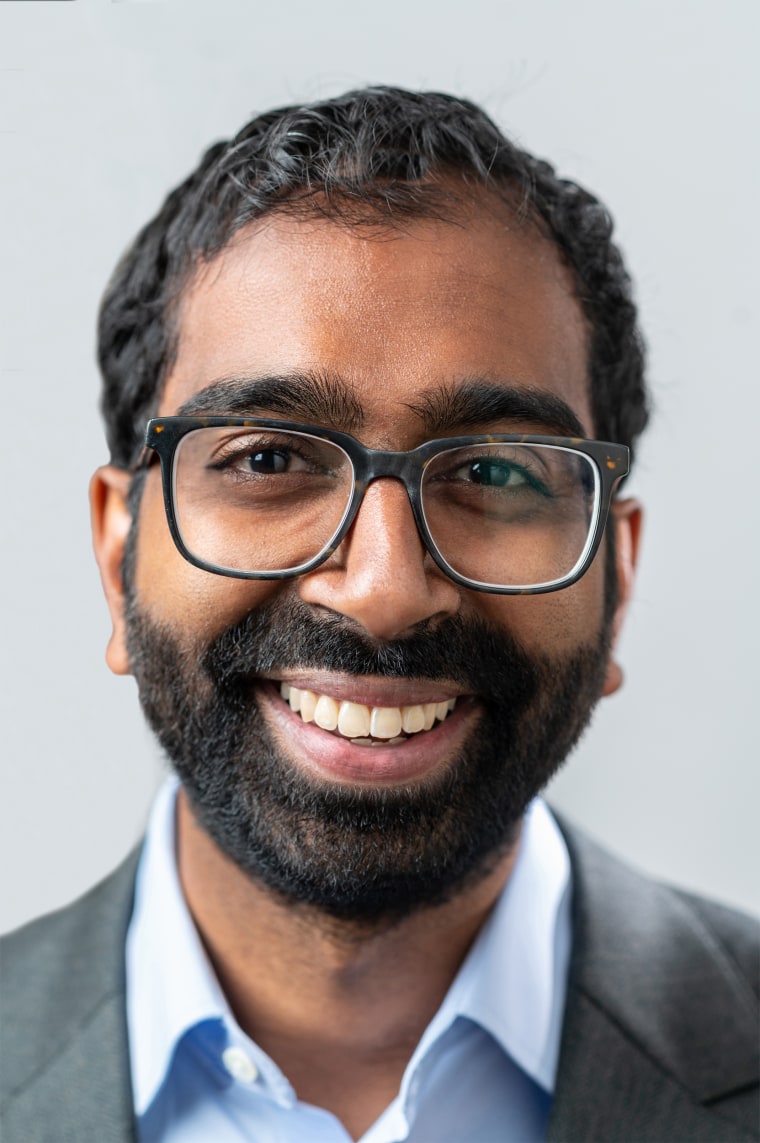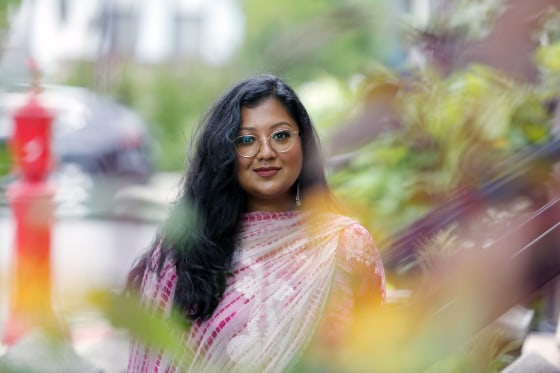Five Asian Americans were elected to the New York City Council on Tuesday, the most the council has ever had. All Democrats, this historic group includes the first Muslim woman, the first Korean Americans and the first South Asian Americans elected to the council.
These victories by young, progressive housing organizers, public advocates and civil rights lawyers — most of whom are women and children of working-class immigrants — were fueled in large part by the economic pressures of the pandemic and the growing political power of the Asian electorate. Only two Asians had previously served on the 51-member City Council. Four of the five new council members will represent their home districts in Queens, which boasts the city’s largest and most diverse Asian population.
This unprecedented level of representation in local politics can have a tremendous impact on the lives of underprivileged Asian New Yorkers, said Howard Shih, research and policy director for the Asian American Federation.
“Having Asian American council members serve on various committees, advocating on behalf of Asian seniors, of Asian businesses, is really important,” he told NBC Asian America. “Having their voice on the inside pushing for budget changes, for resources for community organizations, for access to discretionary funds, is really important.”
None of the candidates have run for office before.

Julie Won, who became one of the first two Korean Americans elected to the City Council, didn’t seriously consider a career in politics until the pandemic hit.
In a span of a year, Won, a tech change agent from Queens, saw it devastate her entire family. Her grandparents died of Covid-19 within 48 hours of of contracting it. Then, both her parents lost their jobs. For four months, she covered their rent by forgoing her own, and was displaced three times. The financial and emotional carnage the pandemic inflicted on her community, Won said, motivated her to run for City Council.
“During the pandemic, what we kept on seeing is that people who don’t understand Asian immigrant stories painted us as a monolith,” said Won, 31. “If you don’t see yourself in rooms where political decisions are made, then you’re always going to be at a loss.”
In District 26, which covers Long Island City and Astoria, she campaigned on tackling food insecurity and bridging the digital divide, which prevented countless immigrant families from applying for the government relief they desperately needed. One of her signature policies, “WiFi for All,” requires landlords citywide to provide tenants internet access as if it were a utility like water or gas.
Linda Lee, the other newly elected Korean American council member, will lead District 23, which covers Bayside Hills and Queens Village. She ran on a wide-ranging platform that included increasing funds for senior services, improving civilian oversight over the police department and investing in workforce training to steer post-pandemic economic recovery.
Sandra Ung, a public advocate for domestic abuse victims and a daughter of Cambodian refugees, will represent District 20, which includes Flushing and Murray Hill.
Ung’s platform centers on supporting small businesses and expanding in-language resources to the many limited English speakers in her district. As a former congressional aide to Rep. Grace Meng, she attributed the rise of Asian Americans as a political force to the work of civic engagement groups as well as the leadership from statewide lawmakers like Meng and state Sen. John Liu.
“There’s been a greater push to raise awareness about the growth of the Asian American community and to have more Asian Americans elected,” she said. “It just shows the importance of continuing to engage the electorate.”
A year after New Yorkers voted the first two South Asian Americans into the state Assembly, they elected their first pair of South Asian City Council members.
Shahana Hanif and Shekar Krishnan campaigned on housing and climate justice, immigrant rights and solving the taxi medallion crisis. Both were recently arrested while participating in a driver-led hunger strike to fight for debt relief. (South Asians comprise 40 percent of the taxi workers union.)
Felicia Singh, another South Asian American candidate, ran for District 32 on a similar platform but lost. She’d been aiming to flip the last Republican-held seat in Queens.
Krishnan, a housing attorney who will represent District 25’s Jackson Heights and Elmhurst, said the absence of South Asian representation in city politics meant that the needs of his constituents have long been neglected.
“The fact that you have this disconnect between how essential and ubiquitous taxi drivers are in our city and the city’s failure to step up and fix the problem it created,” he said, “just tells you the way in which our communities are completely invisibilized.”
In addition to the medallion crisis that has forced more than a thousand of families into foreclosure, South Asian families in Queens also bear the brunt of housing and public health inequities.

Krishnan said he’ll focus on obtaining more public funding for Elmhurst Hospital, which was “at the center of the pandemic” but had only one bed for every 1,000 patients; investing in public housing and different models of community land trusts; and creating bilingual education programs.
Hanif, a Bangladeshi American community organizer, will be the first Muslim woman elected to the City Council, and the only Asian representative outside of Queens. She’s also the first woman of color to represent District 39, a diverse swath of Brooklyn that covers Park Slope, Gowanus and the Bangladeshi stronghold of Kensington.
“My campaign was centered on anti-racist, feminist values aiming to cultivate a city that’s rooted in care and joy,” she said, noting that more than 90 percent of roughly 1,000 campaign volunteers were women.
Her platform focuses on making MTA and other public transit agencies more accessible to people with disabilities — a direction informed in part by her experience as a lupus survivor who was denied paratransit services. She’s also working to ensure that delivery app workers — many of whom are Bangladeshi residents in her district—receive employee status and a livable wage.
To apply pressure on the city, both Hanif and Krishnan said they’re committed to deploying activist tactics in office if need be, including protesting or getting arrested with their constituents.
Krishnan pointed out that South Asians, in movements for independence and fairer living conditions, have long engaged in tactics of civil disobedience to effect change.
“It’s a powerful symbol of solidarity,” he said, “that we’re harkening back to practices that have a long lineage in our culture.”
